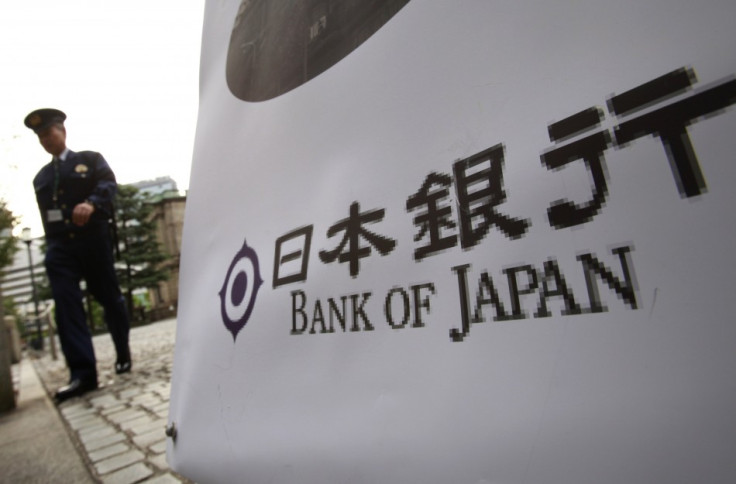Bank of Japan Hikes Inflation Target to 2% and Adopts Open Ended Asset Buying

Bank of Japan has decided to hike its inflation target to 2 percent and to adopt a US Federal Reserve-style open ended asset purchase scheme, marking a strong effort to revive the economy.
"At the Monetary Policy meeting held today, the Policy Board of the Bank of Japan took additional steps to provide monetary accommodation decisively," the central bank said in a statement.
"Specifically, the Bank decided to (1) introduce the "price stability target", and (2) introduce 'open-ended asset purchasing method' (i.e., to purchase assets without setting any termination date) under the Asset Purchase Program".
The central bank will make asset purchases worth about ¥13tn (£91bn, $145bn, €108bn) monthly from January 2014, the bank added. This will include around ¥2tn in Japanese Government Bonds (JGB) and ¥10tn treasury bills. In line with expectations, BoJ maintained its overnight call rate target between zero and 0.1 percent.
The bank also said that it is looking to reach its new inflation goals in the shortest possible time, adding that consumer prices could go up 0.9 percent in the financial year starting April 2014.
The decisions mark a sharp shift in BoJ's policy stand, which has remained conventional for long and comes after strong pressure from the country's newly elected government. A Bloomberg survey of economists had shown that the central bank was widely expected to limit its decisions another ¥10tn boost to asset purchase plan.
Inflation rate hike and aggressive monetary easing steps were some of the recommendations from the newly elected government to boost Japan's lagging economy. Prime Minister Shinzo Abe, who came to power last December on stimulus promises, had urged BoJ to take up unlimited aid measures to help the economy.
The central bank governor Masaaki Shirakawa had for long resisted such demands, maintaining that aggressive action will not have the intended economy boosting effects. But with Shirakawa set to end his term this April and the administration to decide on the next central bank boss, investors are bullish on Japan's long term prospects.
"The BOJ is moving into new territory," said Masaaki Kanno, chief economist at JPMorgan Securities Japan Co. and a former BOJ official told Bloomberg. "Two percent inflation will be hard to achieve any time soon, so the BOJ will keep pushing easy policy for quite a long time."
The announcement cheered the markets in the region, but the Nikkei remained 0.6 percent lower. Yields on the government's five year bonds fell to the lowest level in about ten years, at 0.145 percent. The dollar eased against the yen, trading at about ¥89.11.
© Copyright IBTimes 2025. All rights reserved.





















